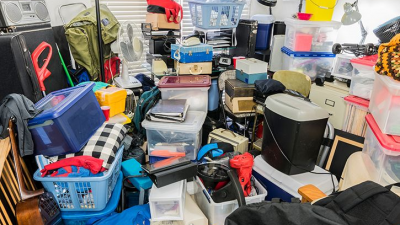By Gerry Lirio
IT WAS another successful supply mission to the BRP Sierra Madre, the country’s military outpost on Ayungin Shoal in the West Philippine Sea, led no less by AFP Chief of Staff Gen. Romeo Brawner Jr. and Coast Guard Commandant Ronnie Gavan.
They were met with water cannons but, if only because the supply, including Christmas gifts, for Filipino soldiers, staff, and fishermen had been delivered, according to NSC assistant director Jonathan Malaya in a morning TV show interview, the mission was deemed successful.
But the success would come with greater risk the next time they do it again. Chinese Coast Guards have been getting bolder. There may be casualties next time.
The TV show host thus asked: Is there a better way to do it?
Brawner said he was not scared. The trip, as it has always been, was a grand Coast Guard production on safety. Under Galvan, the PCG personnel seem to have always been prepared to handle their police duties.
Brawner: We are not scared
“No, but I’m angry because of what they did,” he was quoted to have said after the trip. He was aboard the Unaizah Mae 1, one of the three government boats delivering provisions to Filipino fishermen near Scarborough Shoal, off Luzon.
“I think they didn’t know I was on board.”
“We keep on avoiding them, but they continue to harass, it’s dangerous, it’s dangerous.”
But more than anything, the experience raised questions about the worsening relations between the Philippines and China over disputed territorial waters.
‘It’s going happen again’
It has happened before, the TV anchor said. And it is going to happen again. The last one before that was on November 9. The Philippines filed another diplomatic protest for the November 9 blockade, its 58th against China so far.
Again, the Chinese Coast Guard dismissed the protest claiming the waters of Ayungin Shoal belongs to
China. It warned that the Chinese Coast Guard “will continue to carry out law enforcement activities in the waters under China’s jurisdiction in accordance with the law, and resolutely safeguard China’s national sovereignty and maritime rights and interests.”
The clash of actions between the Philippines and China is not expected to be settled soon. On the contrary, it is developing into another potential flash point on international peace and security as other states have started to take active sides in the controversy.
What Congress can do?
Congress is conducting public hearings to help craft laws to protect the sovereignty and sovereign rights of the Philippines in this dispute with China.
How far can Philippine laws protect Filipino fishermen, soldiers, and Coast Guard personnel?
In the hope of helping Congress craft laws, former Chief Justice Reynato Puno has given the Senate a copy of his position paper on the disputed waters. The paper was submitted to the Senate committees on National Defense and Security, Peace, Unification and Reconciliation, Foreign Relations, Public Works and Finance and Special Committee on Philippine Maritime and Admiralty Zones.
The Maharlika NuMedia has obtained a copy of the paper, which Justice Puno will also present before a grand conference of chief justices in January 2024. We tried to summarize some salient points Puno has raised in the paper.
Blocking an act of war?
Puno addressed in the paper several questions defining the Philippine-Chinese relations, among them:
Was the blocking maneuver an act of war?
Puno divided his paper into six parts. And here, the former chief justice raises more questions, and answers these questions to guide the senators.
In Part 1, Puno asked: What is a military force? What is a law enforcement force?
The paper started with the basic proposition that there was a distinction between military forces and law enforcement forces. The distinction is based on the principle of posse comitatus.
In the Philippines, the principle of posse comitatus is mandated by the Constitution. International conventions also recognize the distinction between military forces and law enforcement forces and their respective activities.
According to the principle of posse comitatus, the paper said a government may call upon its civilian citizens to assist in law enforcement but it “may not use any part of the armed forces to execute the laws,”
Is there a real difference?
Said Puno: “In sum, there is a real distinction between a military force and a law enforcement force. In the Philippines, such distinction is recognized by the Constitution, laws, and jurisprudence.
“The distinction is based on the organizational unit, with those belonging to the AFP being considered military forces whereas those belonging to the PNP are law enforcement forces that are civilian in nature.
The distinction is also based on their function: preservation of the state by the military calls for the highest form of self-defense and justifies the immediate use of lethal force to achieve a military objective;
“In contrast, enforcement of the law and preservation of order by law enforcement forces are limited by strict constitutional procedural and substantive requirements, including the rules of engagement.
The 1987 Philippine Constitution and laws distinguish between military forces and law enforcement forces following the principle of posse comitatus.
Thus, our Constitution defines the armed forces and law enforcement forces differently. Article II, Section 3 enshrines the principle that “civilian authority is, at all times, supreme over the military,” and assigns to the Armed Forces of the Philippines (AFP) the function of “securing the sovereignty of the State and the integrity of the national territory.” Article XVI, Section 6 provides that the AFP shall be a “citizen armed force” whose function is to ensure the “security of the State.”
‘Engendering statements’
Puno said the questions regarding military engagement and law enforcement and the legal significance of their difference were “engendered” by statements made in two public hearings at the Philippine Senate.
First, during the public hearing of the Special Committee on Philippine Maritime and Admiralty Zones on October 23, 2023, the discussion centered on on the proposed provision in the maritime zones bill regarding countermeasures that the Philippines can take against China for the collision and blockade that took place in the vicinity of Ayungin Shoal.
In Part 2: What is the significance of the distinction between a military force and a law enforcement force?
Coast Guard in wartime
Republic Act 9993 provides that the PCG shall be attached to the Department of Transportation and Communication, now known as DOTR, during peacetime and to the Department of National Defense during wartime.
It vested the PCG with maritime law enforcement, safety and security functions, and does not mention the military functions that the PCG might perform following a declaration of war.
PCG needs Congress help
In a separate instrument, namely a PCG Manual on the Rules on the Use of Force, the DOTC authorized the PCG to use deadly force “under extreme necessity” to deal with “foreign registered vessels and their crew within the internal waters, archipelagic waters, territorial sea.”
It may also be resorted to during law enforcement to defend oneself and others. In both cases, prior warning is required.
More importantly, the Manual provides that, within the Philippine CZ, the use of deadly force against a state actor is proscribed, except when the Operations Order provides otherwise.
Within “non-contested areas in the exclusive economic zone” of the Philippines, use of deadly force is not countenanced even against vessels engaged in “hostile actors,” unless the Operation Order provides otherwise.
There is no guideline on use of force in contested areas, such as the TS of disputed rocks.
The PCG is a civilian law enforcement force during peacetime. While it may transform into a military force upon a declaration of war, the rules governing its military activities have yet to be defined.
Peacetime or wartime?
During peacetime, in the international legal system, both military forces and law enforcement forces, as well as their public or non-commercial vessels and aircrafts enjoy sovereign immunity.
“Wherever they may be situated, these forces and their vessels and aircrafts are an extension of the territory of their states and, as such, immune from arrest, search, inspection/boarding or other exercise of jurisdiction by a foreign state. Thus, any threat or use of force upon these forces, vessels and aircraft would amount to an act of aggression against the territory of the flag state,” he said.
Self-defense Vs. aggression
“Aggression would be a just cause for war.
“A state of war is synonymous to a state of armed conflict between two or more states,” the paper said.
“Any difference arising between two States and leading to the intervention of members of the armed forces is an armed conflict” or war.
“Such state of war may exist regardless of whether there is a declaration of war or an authorization to use force or even if there is a lack of resistance to an occupation or a non-recognition by one party of the existence of a state of war.
War declaration to get budget
The purpose of a formal declaration of war or authorization to use force is merely to legalize budgetary allocation, mobilization, and deployment.
“Conversely, a state of peace would be synonymous to cessation of armed conflict. However, for certain legal effects, such as the termination of force majeure, there must be “some formal proclamation of peace by an authority competent to proclaim it.”
During an international or non-international armed conflict in which a flag state is either a belligerent state or a third state whose territory has been placed at the disposal of a belligerent state, its military forces and their vessels and aircraft are a legitimate military objective.
In contrast, being civilian in nature and function, law enforcement forces are not a legitimate military objective, unless they have been incorporated into or tasked to perform the functions of a military force.
Disputed and undisputed territories
“Whether it is peacetime or wartime, within the undisputed internal waters, archipelagic waters, territorial waters and the superjacent airspace of a coastal state, its law enforcement forces, vessels and aircraft may exercise all rights of territorial sovereignty, including prescriptive and enforcement jurisdiction over political, criminal, civil, tax and commercial activities,61 subject to the sovereign immunities of foreign states.
“Its military forces, vessels and aircrafts have the right to defend the territorial sovereignty of the state from internal or external threats. If said territorial, maritime and air spaces are disputed, the occupying claimant state may exercise all rights of territorial sovereignty pending resolution of the dispute by peaceful means.
Is it a military situation?
In Part 4: Bearing in mind the nature of the CCG and PCG, Puno asked: Did the presence of the Philippine Navy, US Navy and Chinese Navy in the WPS transform the incident into a military situation?
What are the legal and political implications of the deployment of the Philippine military to the WPS and its use of the assistance of the US Navy?
In Part 5: the paper examines the important implications in municipal and international law of the distinction between military and law enforcement forces in the concrete context of the disputed territorial, maritime and air spaces in the South China Sea.
What legal and non-military courses of action may the Philippines take to respond to the recent collision at sea and blockade by Chinese vessels against Philippine resupply vessels?
In Part 6, Puno said the obvious. It could happen again. It plays out the different actions that China and the Philippines may take against each other in view of their dispute, especially regarding the EEZ/CS being claimed by the Philippines in the WPS.
“As such blocking maneuvers and collisions are likely to recur, and may become kinetic, it may be useful to anticipate scenarios” to put things under control. Puno is raring to help lawmakers.







